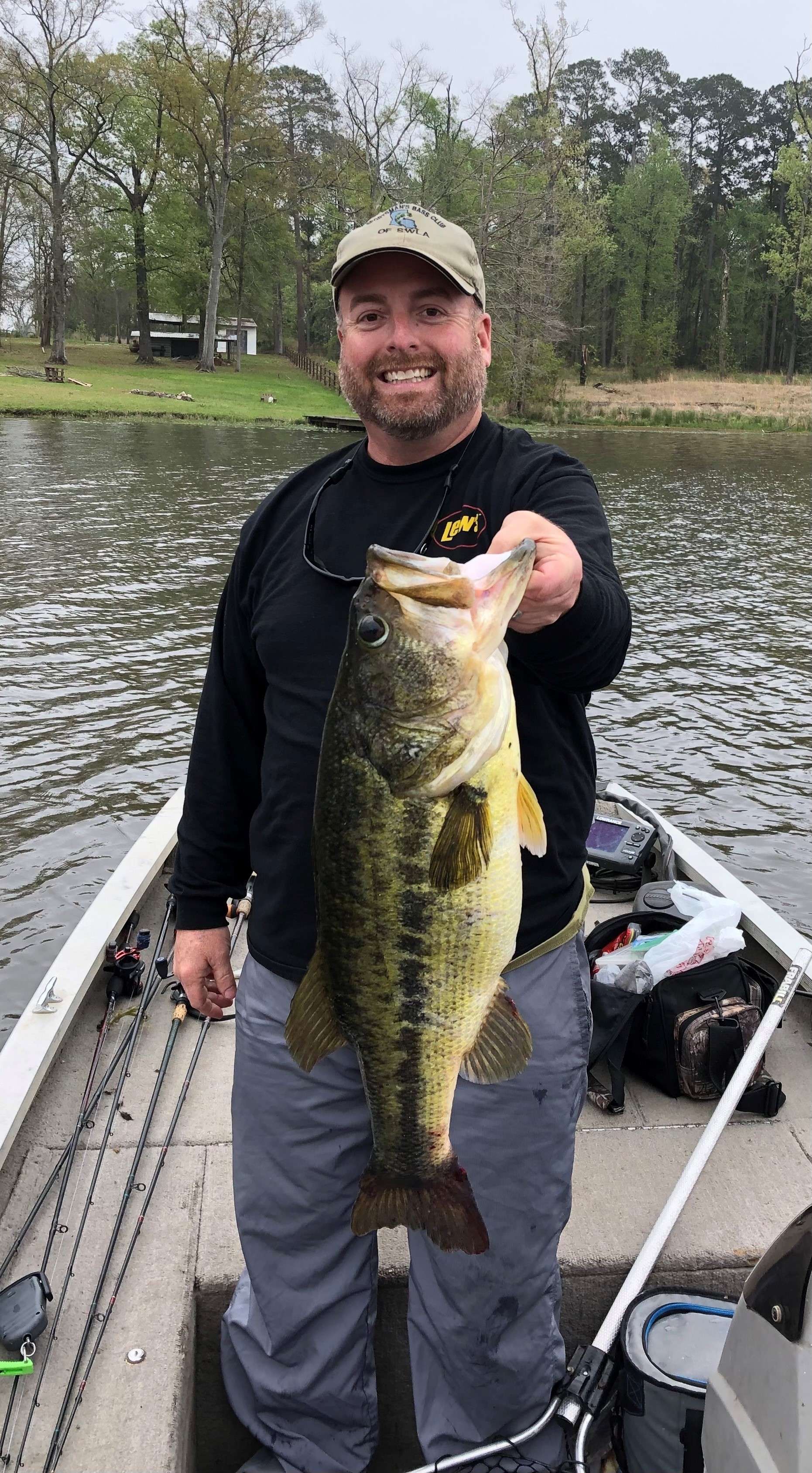Spine Surgery Gives Brian Phelps His Life Back
In August 2023, the Tiger Island Fire, the largest in Louisiana’s history, came within a mile of the home of Brian Phelps and his family in the town of DeRidder. “We were plowing fire lanes around the house, taking down deer stands, and helping our neighbors,” says Phelps, an avid outdoorsman who spends his weekends hunting and fishing. “After doing all this hard work for five days, my left arm and shoulder started hurting. I thought I must have pulled a muscle.”
In September, on the way home from a concert in nearby Lake Charles, he and his wife stopped at an urgent care center, where he was given nonsteroidal anti-inflammatory drugs for musculoskeletal pain. “I’d been looking forward to that concert for many months and was trying to have a good time, but I was absolutely miserable,” he says. “Afterwards, we spent the night in Lake Charles, and I sat up on the couch in pain all night.”
Later that month, his primary care physician prescribed pain medication. By early October, the pain in his left arm and shoulder had worsened, leaving him unable to concentrate at work or get a good night’s sleep. Phelps saw a chiropractor, and toward the end of the month he was referred to an orthopedic center in Lake Charles, where an MRI showed arthritis in his cervical spine. Meanwhile, his pain continued to have an increasingly negative impact on his life.
Near the end of November, he saw a pain management specialist who administered a cervical epidural steroid injection. Phelps came out of anesthesia with immediate relief. “I thought, I’m back to myself. My arm didn’t hurt any longer, and I was good until my son’s Mardi Gras break from school,” he says. “We went fishing every day, then on Valentine’s Day I was getting ready to go out and I felt tingling in my hand and knew it had started again.”
After a second injection provided relief for only two days, the pain management specialist referred him to a neurosurgeon in Lake Charles. “Another three weeks passed before I saw the surgeon, and then my insurance wouldn’t pay for surgery until I tried physical therapy,” he says. “While this was going on, I stopped using my left arm. It was shrinking, and I had no strength in my left hand. I couldn’t play my guitar, couldn’t hold a fishing rod, couldn’t buckle my seatbelt, and I dropped things. I had difficulty getting dressed. My productivity went down. I was missing a lot of work because I couldn’t sit at my desk for a full day. My pinky finger and middle finger were numb.”
Phelps had another appointment scheduled with the neurosurgeon but canceled it based on a gut feeling, and he started looking for other options. He found Krishanthan Vigneswaran, MD, an assistant professor in the Vivian L. Smith Department of Neurosurgery at McGovern Medical School at UTHealth Houston, through his wife’s cousin, a former patient. On April 24, Phelps and his mother left DeRidder at 5 a.m. and made the 3 ½-hour drive to Houston.
“One of the first things I noticed about Dr. V is that he listened to me,” says Phelps, a software developer for the past 27 years. “Then he pulled up my MRI on the screen.”
“We reviewed all his studies from Louisiana and were able to match up his symptoms with what we saw on imaging to find the correct treatment,” Vigneswaran says. “It’s not uncommon to see this kind of problem in people who work at desk jobs. The physical work he did before the fire likely exacerbated his condition.”
Phelps left Vigneswaran’s office with a tentative surgery date of May 14 for a planned anterior cervical discectomy and fusion of the C5-C6, C6-C7, and C-7-T1 vertebrae, which are in the neck and upper back. “I’ve had several surgeries, but I was really nervous about this one, because it was longer,” he says. “But as soon as I walked into the hospital, everyone made me feel comfortable. Dr. V went over the surgery again, and the nurses took care of me like I was family.”
The surgery went as expected, with no surprises. “Our goal was to relieve his symptoms and allow him to return to work,” Vigneswaran says. “Brian spent two nights with us and did very well postoperatively.”
Phelps says he awakened from anesthesia with immediate relief in his left arm and hand. Three weeks after the surgery, he went back to work and started physical therapy to regain strength and improve his range of motion and coordination.
When he returned to Houston for his six-week postoperative follow-up, he brought vegetables from his garden for Vigneswaran and the staff. “This was a surprise that we really appreciated,” the neurosurgeon says. “We’re thankful he took the time to find us and travel to Houston. It means a lot to us when patients make that long journey to get the quality of care we deliver. People who live with chronic pain tend to gradually give up their hobbies and passions. We could show him there was a cause for his pain and rectify it, which allowed him to move beyond a life of pain and get back to the things he loves.”
Phelps says he’s eternally grateful. “I’m starting to play my guitar again and getting ready to get back to bass fishing. Dr. V gave me my life back!”












